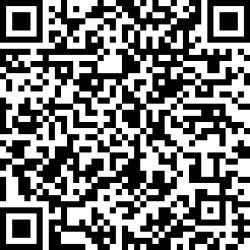MTÜ AMANITA
In addition to direct social entrepreneurship, we also operate as a non-governmental organization (NGO) AMANITA (reg. 80408873) and are guided by the NGO Code of Ethics in our activities.
Contact: amanitaeesti@gmail.com
If you would like to support our activities, please contact: LHV Pank EE147700771002822418
We use the donations received to fulfill our statutory objectives.
The constantly changing world, environmental and social challenges force us to act and adapt in order to survive. Through the activities of MTÜ Amanita, we help raise people’s awareness (we train, organize events and seminars, and offer consultations, etc.). The goals of the association are mainly based on the principles of sustainable development, which have also been formulated in the UN 2015 report (Sustainable Development Goals). We deal with sustainable development in a focused manner in our
activities. An environmentally conscious, socially inclusive and sustainable economic model (circular economy, social entrepreneurship) is important to us.
Focus:
• Health and well-being, but under this, we should primarily focus on mental health.
• Employment and economic growth and sustainable production and consumption, under which we support the employment of people in social risk groups (disabled, unable to work, people with chronic illnesses, with special mental needs, etc.).
• Ensure a better quality of life and social inclusion for people in social risk groups (disabled, unable to work, people with chronic illnesses, with special mental needs, etc.).
• Education and raising awareness of the principles of sustainable development, green technologies and circular economy
In cooperation with MTÜ Hingerahu and Solve et Coagula OÜ, our current priority is to create a mental health center “Villa Amanita” in Pärnu, where we can offer various therapies, trainings, seminars and services in the field of mental health.
May 2024 The 9th European Conference on Religion, Spirituality and Health was held in Salzburg, Austria, organized by Paracelsus Medical University together with the Research Institute for Spirituality and Health. Thanks to the travel support of KÜSK, the board member, Indrek Linnuste, also participated in the conference. Based on the cooperation and knowledge gained, MTÜ Amanita is planning seminars in Estonia in the near future that focus on mental health. Based on the latest Estonian Human Development Report (2023), mental health problems continue to be widespread and on the rise. We believe that the concept of health needs to be addressed holistically and that a person’s personal beliefs, spirituality and religion must not be ignored. These aspects of health were also addressed at the conference, which focused on evidence-based interventions and research on how to integrate these areas.
In October 2022, we organized the Pärnu Mental Health Conference “MENTAL HEALTH AND MINDSET” in collaboration with the Depression Management Network
In May 2022, our team visited mental health centers in Norway such as Modum Bad https://www.modum-bad.no/ and Viken Senter https://www.vikensenter.no/. The Scandinavian direction, where people are treated holistically, i.e. both environmental and spiritual values are taken into account in addition to traditional interventions, was very inspiring to us. Currently, there is a plan to continue cooperation by organizing a joint conference and offering mental health training. Our mission was funded by the Civil Society Foundation.
Annual reports and documents:
2017
2018
2019
2020
2021
Statutes
Register card
Scan the QR code and make a donation!

Focus:
Health and well-being, but primarily focus on mental health.
Employment and economic growth and sustainable production and consumption, under which we support the employment of people in social risk groups.
Ensure a better quality of life and social inclusion for people in social risk groups (people with disabilities, those with no ability to work, people with chronic illnesses, those with special mental needs, etc.).
Education and raising awareness of the principles of sustainable development, green technologies and the circular economy.


